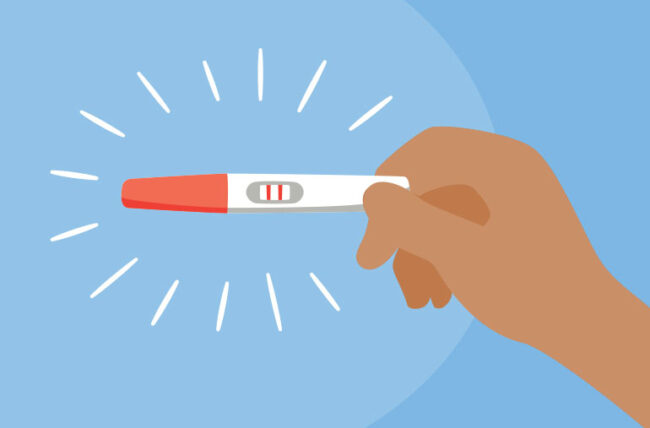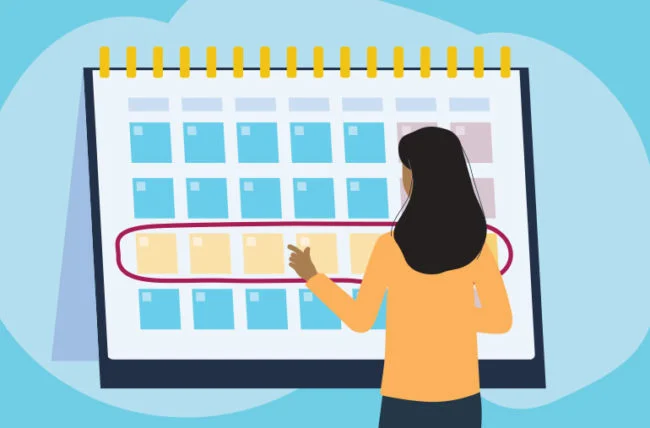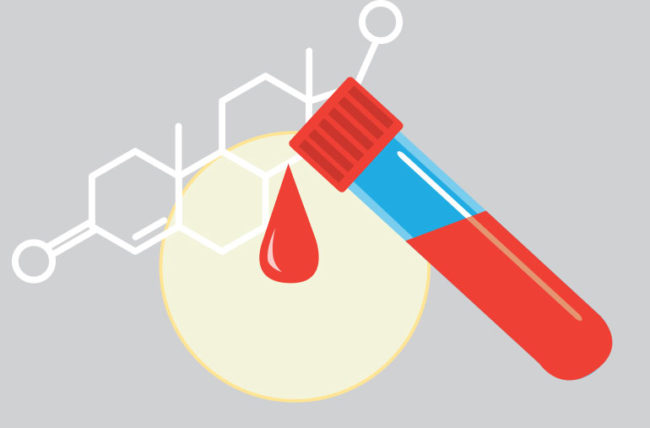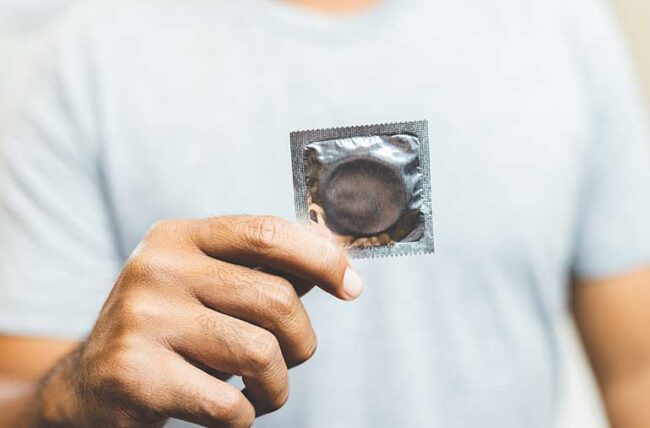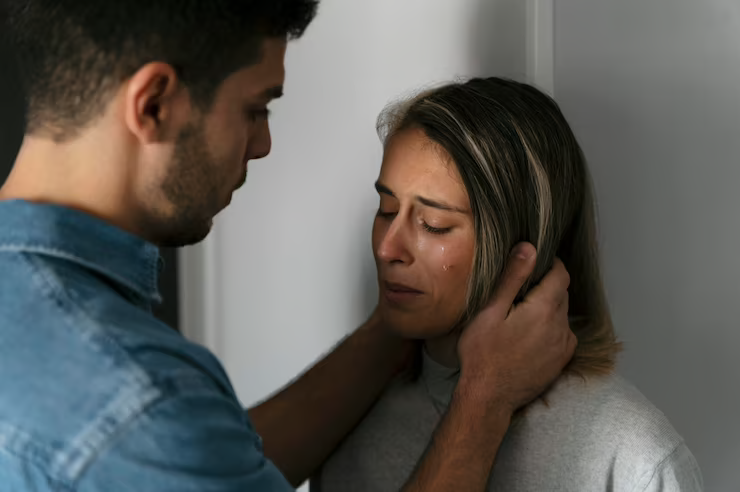Menopause is part of normal aging and marks the end of reproductive years for women. However, many don’t realize what to expect before they are in the middle of it. You may experience symptoms up until a decade prior to menopause.
Pelin Batur MD is a menopause expert who takes us through each stage of the menopause.
What are the stages of menopause?
Hormones are the main cause of menopause. You’ll notice that your body produces less estrogen, and you will also have a decrease in the number of eggs. It doesn’t all happen at once.
Menopause has three distinct stages:
- The Perimenopause This transitional phase, which marks early menopause stages, can last years, sometimes for a decade. Menopause symptoms such as irregular periods, hot flushes and others may begin to appear.
- The Menopause You’ve reached the menopause if you haven’t experienced a period in a year, unless there is underlying medical conditions or medications that could affect your menstrual cycle. Your ovaries are no longer producing eggs and have stopped producing estrogen.
- Aftermenopause Once you have reached menopause you will enter the postmenopause stage. You’ll likely see your symptoms lessen over time and go away. However, you are now at a higher risk of conditions such as osteoporosis or heart disease.
Dr. Batur goes into greater detail about each stage, including symptoms and ways to find relief .
Perimenopause stages
Perimenopause is the time before menopause. You can think of it as the runway leading up to the main event. Perimenopause may begin as much as a decade prior to menopause. However, the average time spent in this stage is four years.
Your body will gradually slow down the ovulation cycle. irregular menstrual periods and cycles are the most common signs of perimenopause.
Dr. Batur explains that as estrogen levels decrease, menstrual and period cycles can become a bit wonky. They may be closer together or skip cycles. You may also experience some menopausal-like symptoms.
Some people may not experience symptoms, but others will.
- Periods that are irregular or missing.
- It is possible that you may experience more or less bleeding during your period.
- Hot flashes.
- Vaginal Dryness.
- Frequent Urination.
- Sleep disorders such as insomnia.
- A mood change can include irritability, or depression.
Perimenopause is divided into two distinct stages: early menopause and late menopause. However, they are not always easy to distinguish.
Early menopause transition
The first stage is when you are just beginning to feel hormonal changes. Your menstrual cycle and periods will remain the same, but other symptoms may begin to appear.
- Hot Flashes: Dr. Batur says that it’s common to experience a few days with hot flushes. This is especially true just before or after your period when estrogen levels are low.
- Weight Gain:Most people increase their weight as they age. It is normal to gain weight during early menopause.
- Sleep Changes:You may start to feel some insomnia (especially when you have hot flashes during the night, also known as Night Sweats).
Dr. Batur explains that this is a normal phase of life. If your symptoms are mild you can make lifestyle changes such as getting more sleep or increasing your cardio. If they are really bothersome, you should speak with your doctor, even if regular periods continue.
Late menopause transition
Late menopause is the transition when you are getting closer to menopause. This period is marked by irregular menstrual cycles and periods.
Dr. Batur explains that during perimenopause you don’t ovulate as often. You may still have estrogen but not enough progesterone. This can lead to heavy bleeding the next time you menstruate because the uterine lining is thickened by the estrogen.
If you are in your 40s and younger, it could be an indication of premature ovarian failure .
Dr. Batur says that “as you approach menopause you will start to skip periods for several months at a stretch.”
Menopause
Menopause is when you haven’t gotten your period in a year.
Dr. Batur says that this usually happens at age 52. After that, you will be in menopause for the rest of your days, as you won’t be ovulating anymore and you have lost the ability to have children.
Menopause symptoms can last anywhere from mild to severe. You don’t have to suffer in silence if you are experiencing symptoms you can’t seem to shake.
Dr. Batur knows that telling people to “grin and bear it” and to “eat healthier and lose weight” won’t help those who are suffering. Your healthcare provider will want to ensure that your symptoms don’t relate to any other medical conditions.
Postmenopause
Postmenopause is when your menopause symptoms begin to diminish and may even disappear (though you might still experience random hot flashes).
You’re now at higher risk of other health issues. A decrease in estrogen can be a factor in certain conditions, such as:
- Cardiovascular Disease Estrogen is protective against heart attacks, strokes, and heart disease.
- Osteoporosis Dr. Batur says that estrogen is very important to bone development and bone density.
- Atrophy of the vaginal lining:A deficiency of estrogen can thin the lining, causing discomfort during sexual activity as well as frequent urinary tract infection.
- Issues with mental health: Hormonal changes may play a part in anxiety or depression.
Your healthcare provider’s awareness of menopause and its impact on health will increase as you age. If they don’t bring it up, then you should, even if your feeling great, but more so if not.
What symptoms should you report to a doctor?
Menopause doesn’t have to be a miserable experience. Ask for help if your symptoms are affecting your quality of living.
Dr. Batur suggests that you tell your Ob/Gyn, or primary care physician, “Hey, listen, I’m worried about my hormones.” You can discuss the various options with them, including any or all of the following:
- Holistic Approaches: Dr. Batur says that these include good old-fashioned lifestyle tips, such as getting enough sleep, managing stress and staying healthy. But avoid supplements unless they are specifically recommended by your doctor.
- Hormone Therapy: Different types of hormonal therapy increase your hormone levels in an attempt to relieve your symptoms. She adds that “this requires a complex, individual discussion with your healthcare provider.”
- Treatment options that are non-hormonal: These include Depression medications, also known as selective serotonin reuptake inhibits (SSRIs). These medications can relieve menopause symptoms, such as hot flashes or mood changes.
Menopause symptoms are not easily cured. You may be asked to return for a second appointment if you have concerns about your symptoms.
Dr. Batur says, “This can be a very personal thing and it may be complicated depending on your history of medical conditions.” If you feel that your concerns have not been addressed, schedule another appointment.
Listen to this episode of Health Essentials podcast to learn more about Dr. Batur’s topic. What to Expect in Menopause. A new episode of Health Essentials is published every Wednesday.



